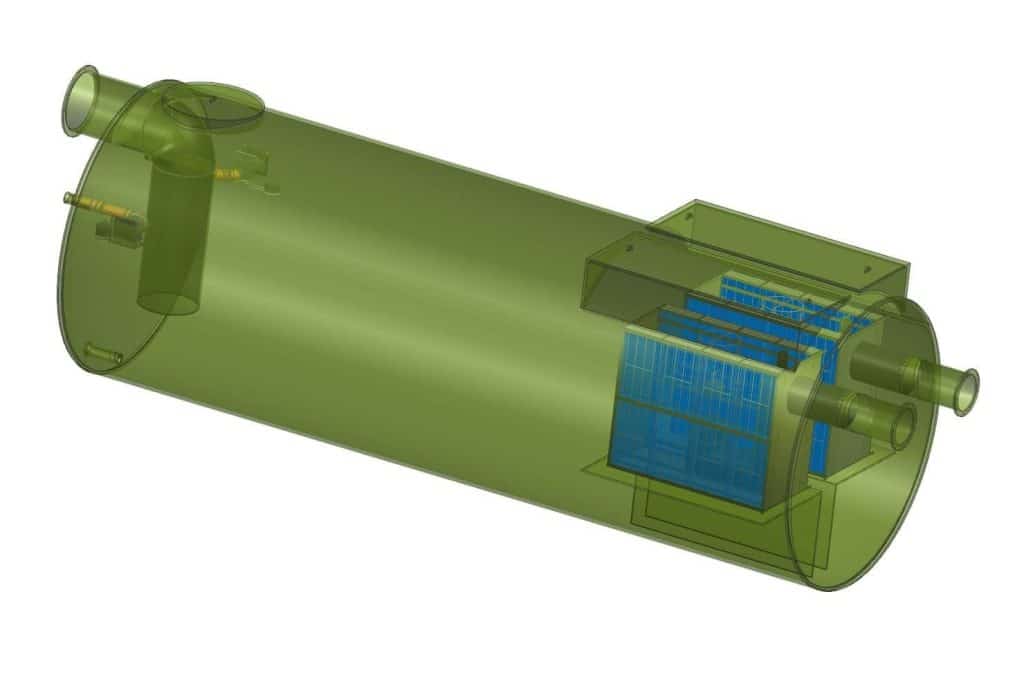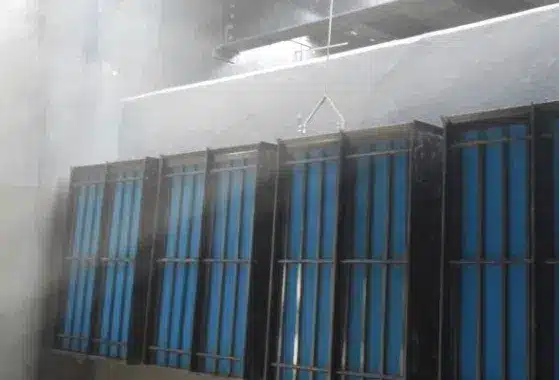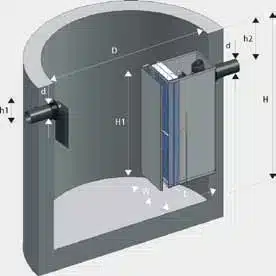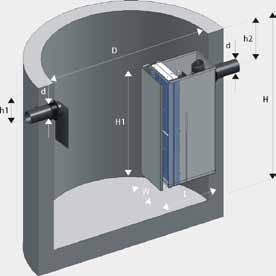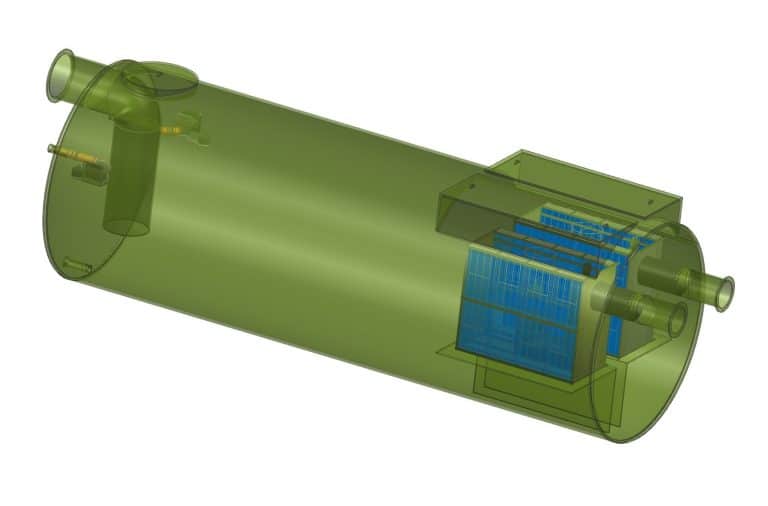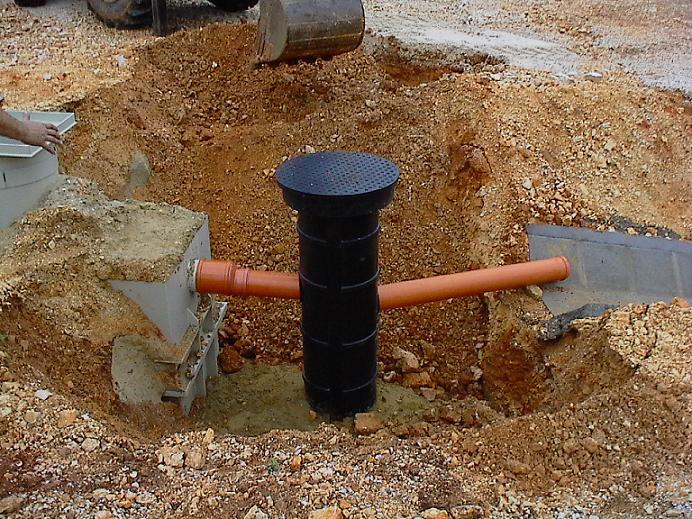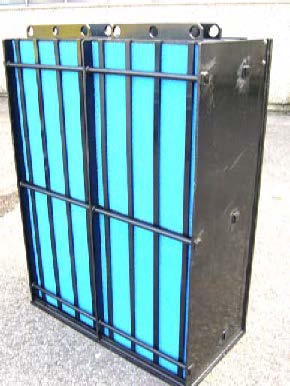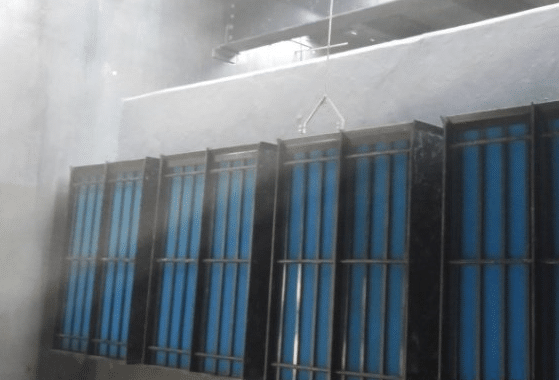Ever wonder what’s hidden under Washington’s streets, keeping our water clean? Freytech Inc. Washington Below Ground Oil Water Separators are key to protecting our water from pollutants. They are vital for businesses and industries in the state.
These separators are a big part of stormwater treatment systems. They work hard to take out oil and other pollutants from water. This keeps our rivers, lakes, and Puget Sound clean. As rules get stricter, knowing about these systems is more important for those in charge of facilities and businesses.
The Industrial Waste Program in King County sets the rules for handling wastewater. It focuses on protecting the environment, public health, and the quality of biosolids. The program helps businesses follow the rules and lessen their impact on the environment.
Key Takeaways
- Below ground oil water separators are essential for environmental protection in Washington
- These systems remove oil and contaminants from stormwater and wastewater
- King County’s Industrial Waste Program regulates industrial discharges
- Compliance with regulations is crucial for businesses and industries
- Underground oil-water separators contribute to the health of local waterways
Understanding Below Ground Oil Water Separators
Below ground oil water separators are key in fighting pollution and protecting the environment. They keep water clean by taking out oil and other harmful stuff before it goes into the sewer.
What are Oil Water Separators?
Oil water separators are special underground tanks placed between drains and sewer lines. They catch sediments and floating oils, stopping water pollution. These are especially important for businesses that make oily waste from things like petroleum products.
How Do They Work?
These separators slow down the flow of wastewater with baffles. This lets oil float up while solids sink down. Then, the oil can be taken out, making the water cleaner and helping the environment.
Types of Below Ground Separators
There are two main kinds of below ground separators. Standard baffle separators use gravity to separate oil and water. Coalescing plate separators (CPS) have plates that pull together small oil droplets, making them easier to remove. Both kinds help control pollution and keep water clean.
Washington Below Ground Oil Water Separators: Regulations and Requirements
In Washington state, businesses that handle oily or dirty wastewater must follow strict rules. The National Pollutant Discharge Elimination System (NPDES) says that industrial sites need oil water separators. These separators help keep our water clean and manage wastewater properly.
The King County Industrial Waste Program makes sure these rules are followed. If a business wants to put in a below ground oil water separator, they must follow certain steps. They need to make sure the separator can handle the amount of wastewater and get approval before putting it in. They also have to send their plans to local sewer authorities or King County for checking.
When sending in their plans, businesses must give lots of details. This includes information about the facility, drawings of the separator, maps of the site, and details about the water source. This careful review makes sure the separators work well for treating wastewater. Following these rules helps businesses avoid fines and helps the environment.
It’s very important for businesses in Washington to know and follow these rules. Having and taking care of oil water separators not only keeps them in line with the law. It also shows they care about the environment and good business practices. This is a big step towards taking care of our water and being good stewards of the environment in the state.
Benefits of Installing Below Ground Oil Water Separators
Below ground oil water separators bring many benefits for businesses and the environment. They are key in treating wastewater and preventing pollution.
Environmental Protection
These systems remove oils and greases from stormwater runoff. This keeps local water systems safe and stops harmful pollutants from getting into our waterways. They help improve water quality by trapping contaminants.
Regulatory Compliance
Using below ground oil water separators helps businesses follow NPDES rules and local laws. This keeps companies safe from fines and legal trouble. It shows they care about the environment.
Cost-Effectiveness
Oil water separators are a smart choice for treating wastewater. They make water safe for discharge into sanitary sewers. This cuts down on the cost of other treatment methods and lowers business expenses.
By choosing below ground oil water separators, companies fight pollution and save money. These systems support the environment and keep our water clean in Washington state.
Selecting the Right Oil Water Separator for Your Facility
Choosing the right oil water separator is crucial for your facility. It affects your environmental compliance and how well your operations run.
Key Selection Factors
Look at capacity, flow rates, and how well the separator removes waste when picking one. These factors are key to its performance and if it fits your needs.
Advanced Coalescing Technology
Freytech Inc. has advanced coalescing technology in their separators. This tech ensures a clean discharge at 5 PPM, beating North American limits of 10 PPM. For facilities with emulsified oil, these separators can get down to 0.1 PPM.
Choosing a separator that matches your facility’s needs and uses advanced technology ensures top performance, meets regulations, and protects the environment.
Maintenance and Best Practices for Oil Water Separators
Keeping your oil water separator in top shape is crucial. Regular maintenance ensures it works smoothly. King County recommends checking it every six months.
This early check-up helps spot problems before they get worse. It keeps your separator running efficiently.
During inspections, look for sludge and floating oil. Clean the coalescing plates to maintain their effectiveness. If sludge hits 8 inches in the inlet chamber, or if there’s over two inches of oil, it’s time for a clean.
For cleaning, it’s best to hire professionals. Check under “Tanks – Cleaning” in your local directory. Don’t use septic tank cleaners, as they’re not suited for oil water separators. Proper care involves diverting oils and sludge, regular checks, and removing built-up materials quickly.
These separators are crucial in storm water systems. They process runoff to meet the US EPA’s Clean Water Act standards. With effective oily water treatment, facilities protect the environment and dodge big fines.

